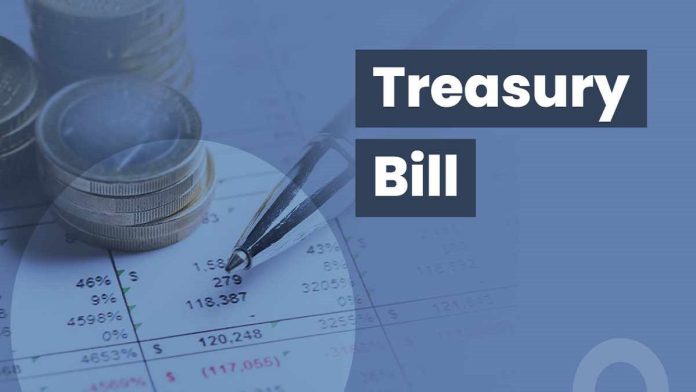Yields on Nigerian Treasury Bills surged past the 21% mark in the secondary market, driven by a wave of investor repositioning ahead of an anticipated primary market auction. The spike comes amid reduced naira holdings by investors and heightened activity in longer-dated instruments.
According to CardinalStone Limited, average yields rose by 8 basis points (bps) to settle at 21.13%, with notable upward pressure at the long (+18bps) and mid (+17bps) segments of the curve. The uptick reflects sustained selling activity and shifting investor sentiment.
Market activity opened the week on a mixed note. Foreign portfolio investors continued to exit positions, while domestic investors maintained a bullish stance, especially at the longer end of the curve.
Yields on specific tenors rose significantly, with the 4-Sep and 8-Jan bills gaining 20 bps and 132 bps, respectively. The 26-Mar paper also experienced wide bid-offer spreads, trading between 19.60% and 19.10%, according to TrustBanc Financial Group.
Despite the pressure on yields, buying interest persisted in select maturities such as the 5-Feb and 26-Mar bills, driven by attractive rates and ample system liquidity. The short end of the curve saw a marginal yield decline of 2 bps, led by demand for the 73-day to maturity bill, which dropped 3 bps.
Conversely, yields expanded at the mid (+20 bps) and long (+25 bps) segments, fueled by selloffs in the 164-day (+39 bps) and 269-day (+132 bps) maturities. Meanwhile, the Open Market Operations (OMO) segment saw a 10 bps decline in average yields, closing at 29.2%.
Analysts expect the current market trend to persist in the short term, with further yield adjustments likely as investors continue to react to primary auction outcomes and FX market developments.











